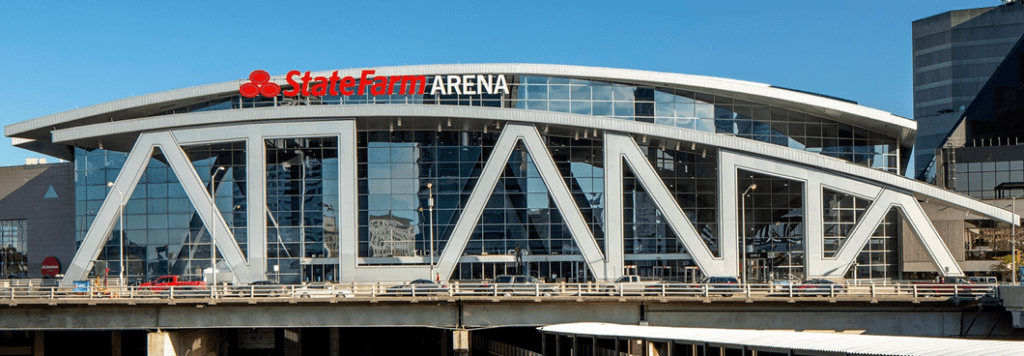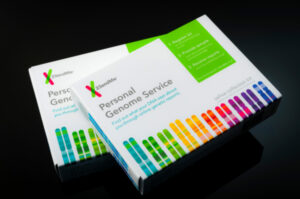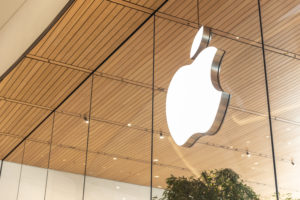Marcus Wasdin started off as an accounting major delivering mail at a large accounting firm and there he found his passion for technology. It was his conversations with the tech department that made him realize accounting was not the career for him and encouraged him to switch majors and career paths to eventually become a Chief Information Officer.
In this Deep Dive, Marcus shares how he worked his way from the mailroom at Arthur Andersen to become the CIO of Atlanta Hawks and State Farm Arena.
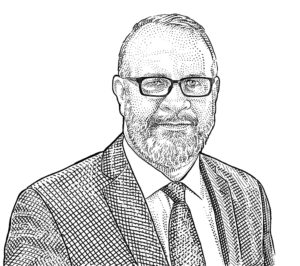
Chief Information Officer
Atlanta Hawks and State Farm Arena
Walk us through your CIO path. How did you decide to pursue a career in technology, and how did you progress to your current organization?
It’s actually an interesting story. My path to CIO may not be the traditional path. I was the kid that liked computers. They were just appearing when I was in elementary school. I think our school had two or three, and I gravitated to them. I’ve also always been a gadget guy, interested in any type of electronic or game or gadget, and I always have liked to take stuff apart and put stuff back together to see how things worked. But as I got through high school and started college, I thought I wanted to be an accountant. Something about logic and order interested me. So, I started school to get a business degree in accounting. Fortunately, I attended Georgia State University, which is right downtown. Many of my college fraternity brothers were already working at the largest accounting firm in the world, Arthur Andersen, part-time doing various administrative tasks. And so, I thought what better way to understand what accountants do than to try to get some sort of job there. I got a job in the mailroom at Arthur Andersen when I was a freshman in college I started delivering mail and getting to know and understand people while seeing what they do on a daily basis.
I started my first couple of accounting courses in school and realized this is not what I want to do. Fortunately, one of the groups I delivered mail to at Andersen was the technology department. I would ask tech questions and we’d have nice conversations. The head of the group at the time said six months into my job, ‘What the heck are you doing in the mailroom? You need to come and work with us.’ Which started my technology career there, basically working on computers and printers and switching out toner cartridges and all that kind of stuff. It progressed, and when I graduated college, I ended up working with Arthur Andersen business consulting, which was my first professional role. I became a consultant around technology and process. That gave me a great baseline and understanding of how you go into different types of businesses, how you understand what their business challenges are and what they’re trying to accomplish.
That was all just a fantastic learning experience for me. And if you think about it, it’s very similar to back when I was a kid tearing stuff apart, seeing how it worked, and putting it back together again. That’s what consultants do in a certain aspect, is the kind of try to tear businesses apart, see how they work, and put them back together again. I left Andersen in the late ’90s because the dot-com boom was happening and I was lured to a small software company that was 50 people and $800,000 in revenue, and I was with them for seven years, all the way up to about $120 million in revenue. My initial role there was doing software demonstrations. I had to be both a business person and a technologist to be successful. Ultimately, I was promoted to run the worldwide sales support organization. One of the primary goals of that position was to understand a business and its challenges and devise solutions from our product stack that could solve those challenges. I found myself again tearing things apart and putting them back together.
In the late 2000s, I was recruited away from software to the quick service restaurant business by a mentor. This was my first stint as a CIO, and that was more operational in nature. That’s the chapter of my career I’m in right now, which is getting things done. I went from consulting things done to selling things done, to getting things done. They take very different skill sets. I was fortunate enough to be there and accomplish some great things. This was my first real taste of making significant changes and being able to watch as those changes improved the business. There were several projects I worked on that were more process in nature than technology and I was able to apply the logic and problem-solving skills in a new way. I was at this quick-serve restaurant company for seven years and got a phone call one day at my desk from a headhunter who asked if I’d be interested in joining the Atlanta Hawks. They were creating a brand-new role, chief information officer. This is four years ago. There are 30 teams in the NBA and back then only three teams had CIOs. The Hawks were going to be the fourth. The recruiter said, ‘Your career ticks all the right boxes (consultant background with technology and hospitality). Would you be interested in speaking with these folks?’ I’m a native Atlantan and grew up going to that building for basketball and concerts. And even more exciting for me, they were undergoing a $200 million renovation on the arena. We had brand new ownership that was very focused on bringing a championship to Atlanta and doing all the right things that we need to do to build a championship organization, both on the court and off the court.
Can you tell us about some of the initiatives you’ve overseen within your current organization and some of the major things you’ve been able to accomplish as a CIO?
The first 18 months I was here was spent rebuilding that arena and spending $25 million of that $200 million on technology. That was fantastic. It was the opportunity for me to put my fingerprints on a building that I grew up going to.
It’s a challenge, just getting something that massive up while still being functional and operational. It was like trying to build a plane while you’re flying a plane. Renovating an arena instead of building a new one is even more challenging because we were trying to play basketball while Humpty Dumpty was all busted apart. On a nightly basis, we had to put Humpty back together again so that we could have events inside the building.
During those first 18 months, I don’t even think I took a breath. We had an amazing team, both my team and the team surrounding us. Our third-party partners from a construction perspective along with our technology third-party partners were great as well. When I got here, the overall NBA rankings based on guest experience and fan feedback put us at 16. We were in the middle of the pack. We went through the renovation, and we put some great processes in place. We’ve got a fantastic operations team, and we built out this program that we call the after-action meetings where we work with the analytics team and they facilitate a lot of different things including guest feedback and surveys. We take “voice of the customer” data and make operational changes to what’s happening to try to continually improve our guest experience. Though they didn’t do it during the COVID year, I’m happy to say that for the last several years we have maintained the number one overall guest experience in the NBA. I really attribute that to a lot of great work by a lot of people, but it’s also this process we put in place based around continually improving our operational expertise and excellence.
Another initiative I’m proud of is our participation in the democratic voting process. We were the very first sports venue and the largest voting venue in the United States during the presidential election in November 2020. That carried with it some interesting challenges as you can imagine. It was really interesting to be part of the process of working with the Fulton County government here in Atlanta and helping them set that up. Our principal owner always talks about the Atlanta Hawks being a civic asset and as a civic asset, how we need to be giving back to the community and make the Atlanta community a better place.
Our CEO had the brilliant idea to say, Voting is a challenge. We have this large building and we have the number one guest experience team in the NBA. What can we do to flip voting on its head and try to make it a pleasant experience as opposed to something that people dread? Neither I nor any of my team had even touched or worked on that technology, but in partnership with Fulton county and our amazing staff, we were able to pull off a very successful early voting process. We received great accolades from everyone.
How did your company handle the pandemic and its effects on your business?
We’ve been super fortunate. We have a fantastic ownership and leadership group that stepped up during the worst of COVID. One of the phrases that I loved hearing our principal owner say was, ‘Good businesses are built to weather storms like this. We are not under duress, so we should not function like we’re under duress.’ We were fortunate enough to not lay anybody off. We didn’t cut salaries. They paid part-time staff like they were working all the way through the end of the fiscal year. And on top of that, because we had some more bandwidth that we typically don’t have, we made some strategic technology investments during that time as well. The big one that we did was we changed over our CRM and our marketing automation systems. That involves a lot of work from the sales organization that’s typically super busy during that time of the year. We rolled out a brand-new CRM sales automation and marketing automation toolset that is now fully functional. It would have been a much, much taller task to do if we had a normal business going on.
One of the things that we’ve done over the last four years of my tenure is we’ve ripped and replaced practically every system, both from a typical corporate perspective as well as our guest-facing systems. We are in great shape now that we have the baseline platforms that we’re going to be aggregating around and driving our business forward.
Like most organizations, we are grappling with things like vaccinations and testing. We are in the business of gathering large groups of people together, and we also have two very diverse businesses. Basketball is something that we promote and control. We have guidance from the NBA, and they specifically give us guidance around the players, like how close you can be to the players without wearing masks, being tested, or being vaccinated. The bigger challenge for us is on the concert side of our business because, in a normal season, we have 43 home games plus playoffs. In comparison, we have more than a hundred non-Hawks events each year. Each one of those events can be very different, with very different attendees. Each one of the events has a different set of rules that they want us to follow. What’s challenging for us is how we come up with some consistency for our guests and also meet the rules that are being demanded.
What new or disruptive technology or emerging trend do you think will impact your industry in the future?
The fact that change is happening so rapidly and continues to accelerate is in and of itself a disruptor. The challenge is going to be how do we as professionals, in each one of our respective businesses, bet on the right change and go after it to make sure it’s going to be successful. How do you identify the specific types of change that you think will be the biggest mover for your business? We’re all inundated these days with so many different things that unless you can be disciplined and focus on a handful of items and do them really well, you kind of get lost in all the stuff that’s happening.
I am excited about some of the RFID technologies, where it’s contactless and fast. Another potential innovation is sports betting. Of course, the state of Georgia has to approve. If that happens, it could be a huge fan engagement platform. Imagine being able to bet on certain players doing certain things during a game in real-time. Very exciting stuff that requires a significant investment in infrastructure to support. With some of the wireless technologies, whether it’s the next iteration of Wi-Fi, Wi-Fi six, whether it’s 5G, or whatever comes after 5G from a cellular perspective, low latency and quick reaction times will be as important as overall bandwidth.
With virtual reality, we talked to companies today that have glasses that don’t look much bigger than what I’m wearing. And because of things like 5G, as you’re scanning the floor, you can highlight the players and what their stats are. And when somebody takes a shot, as soon as the ball leaves their hand, the technology knows that they are 32 feet away from the basket and then it gives you percentages on that kind of shot. That kind of stuff is potentially coming, and it only happens when there’s a proliferation of these quick connectivity and bandwidth types of technology. I’m excited about all aspects of personalization and allowing fans to enjoy the game the way they want with as little friction as possible.
Let’s talk about the availability of talent today to help you accomplish the milestones you were able to reach. What do you think about the current state of IT talent that’s available, and what strategies did you employ to recruit and develop that talent?
To date, I haven’t really had an issue with hiring talent. With our organization and most sports organizations, there’s a lot of brand recognition, there’s a lot of brand notoriety. We do have very complex businesses because if you think about it, we’re in sports, entertainment, parking, retail, food and beverage, and security business, to name a few. We run a lean organization from a full and part-time staff, so everyone has to be efficient and productive. The technology staff is not large, and we have a lot of responsibility. So, we leverage partners to amplify the talents of our internal team. The talent shortage has impacted us through some of our partners that may struggle to find talent for their organizations. In addition, we’ve had to be mindful of hardware needs and the current constraints on supply chain.
Like the rest of the hospitality sector, we struggle with staffing hourly workers. One of our core pillars is Employee Experience and we work hard to constantly improve the experience via process and technology. In addition, we look for ways to automate the more routine tasks so our team members can focus on more important aspects of their job. That could be things like more self-service technology for food, beverage, or retail. One of the things that we’re exploring in retail is the ability to use RFID types of tags for all merchandise. We don’t have the magic bullet, but it’s just the concept or the guiding principle is we have some great people there showing up and working hard. How do we make their lives easier and better? How do we amplify their talent? How do we make them more efficient? That’s what we’re trying to do.
What advice would you give to someone who aspires to be a CIO?
My first item of advice, and this is for any business professional, is: you’ve got to be curious. You’ve got to be curious about what’s going on around you. Think about how things work and how do constituent pieces work together to make your overall business successful? Don’t get into this business unless you are curious about how things work.
My second item of advice is: try to be well-rounded. Like you’ve heard, my path to the CIO position was a little bit different. I didn’t start in an IT shop. I started my path as a consultant and more in sales, albeit at a technology company, and then kind of worked my way back into tech. Try to get some external experiences outside of technology to round you out a little bit better. Understand how the finance and accounting part of your organization works. Understand how the sales part of your organization works and how the marketing parts of your organization work, because every single part of the business now is touched in some shape, form, or fashion by technology or data. The more you can understand those different aspects of the business, the better off you’ll be.
My third item of advice would just be: be fired up about it. Do something that you’re excited about.
How do you decompress from the challenges of being a CIO and what do you like to do for fun? What are some of your hobbies?
I like to spend time with family and friends. We love to travel, it’s always a recharging thing for me. We love to go and see new things and have new experiences. Recently, I made the transition from spending money on material things to spending more money on experiences because those are the things that you remember.
I think is the neatest place I’ve ever seen, because it’s just a marvel, is Santorini, Greece. You’re just perched on the edge of a volcano that’s poking up through the ocean. My most surprising journey, which was I didn’t really expect much out of it, was Istanbul, Turkey. I was there for a day and a half before we jumped on a cruise. That’s an amazing city. I mean, it’s the only city in the world that spans two continents.
I’m also a big car guy. I love cars, so anything having to do with cars and racing is always engaging.
Who would you say have been the biggest influences in your career path, and why?
My parents were two of the smartest people that I’ve ever known in my lifetime. They were not formally educated. They both graduated high school and neither one of them went to college. I was the first person in my lineage of family to go to school, but just watching their work ethic and their smarts and the balance that they had is something I try to emulate.
My father’s companies tried to continually promote him to larger roles with more responsibility, but those roles would have taken more of his time away from his family. He was extremely successful in his career but found that sweet spot that worked for him. He built a great life for us and it gave him the flexibility to do things that other people didn’t have. When I was in high school and playing high school baseball, he had the ability to take off work and come and see me play baseball. He was the only parent there watching the high school kids play baseball, and I remember that. He made a point to prioritize his family. He managed to do what he needed to do and meet his responsibilities as a great father while also having flexibility in his work. So, I look back on that and I think there are multiple times in my life where I’ve gotten away from that type of flexibility, and I continue to try to remind myself to get back to that.
Are there any books that you recommend, maybe these are books that you give to others or that have shaped you as a CIO?
I probably read more periodicals, and sadly enough, just stuff on the internet than I do actual books. There’s been a couple of books that spoke to me in general. There’s a couple of books by Simon Sinek where it’s all about the ‘why?’ His book “Start with Why” says it’s not enough to engage people to say, here’s what we need to do. It’s much better to say, ‘This is why we need to do what we’re going to do and bring people along on that journey with you. It’s better to have them completely understand the motivations and the thought processes behind what you do.’ I would say any of Simon Sinek’s books are pretty good reads.
The organization that I’ve been a part of that have been the most successful organizations are ones that define their vision, mission, and organizational goals. Those elements are then shared with the team which allows alignment from top to bottom. When you have that type of context and then you have that line of sight between what you’re doing to what the overall mission and goal is, I think it just makes you a much richer, more successful organization.
Do you have any final words you’d like to share?
I look forward to engaging with my peers and everyone on the CIO Professional Network. There’s just a rich network that you have been able to create. Thinking about it, most of the problems that we run into on a daily basis have been seen before, and there’s a high likelihood that someone has already solved this particular problem. And if they haven’t solved the problem, they may know someone who can help you solve the problem. I’m looking forward to that ability to contribute to that as well as be a recipient of that.



